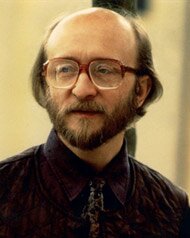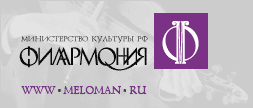Lyubimov Alexei
Since his graduation from the Conservatory in 1968, Mr. Lubimov has pursued an active career as a performer and has recorded a wide array of music, an extensive sample of which is provided here at the Classical Archives. From early in his career, he has championed the works of modern composers, and premiered numerous works of Soviet composers, such as Schnittke, Demidov, P?rt, and Volkonsky; he also gave first performances in the Soviet Union of works by such seminal composers as Webern, Boulez, Stockhausen, Cage, Penderecki, Ligeti, and Ives. He even created his own festival, Alternativa, dedicated to the music of the avant-garde, in 1988. During much of the 1970s and 80s, ideological censorship restricted Alexei’s public performances to within the USSR; during this period he created strong associations with such outstanding chamber musicians as violinist Oleg Kagan and cellist Natalia Gutman, as well as with the Philharmonic Orchestra, under conductors Kyrill Kondrashin and Wassili Sinaiski.
In 1976, Alexei Lubimov’s interests expanded to Baroque music and historic instruments, manifest in his co-founding of the Moscow Baroque Quartet—along with Tatiana Grindenko on violin, Anatoly Grindenko on viola da gamba, and Oleg Khudyakov on flute. By 1981, Mr. Lubimov was giving performances on the fortepiano of the works of Mozart and Haydn, the first of their kind in the Soviet Union. A few years later, he presented the program, “The Golden Age of Harpsichord Music 1650-1750” with his own Moscow Chamber Academy, with works by German, French, Italian, and British composers. He continues to be very active in the Early Music world, performing in several festivals within Europe; he was recently appointed to the faculty of the celebrated Mozarteum in Salzburg.
Alexei Lubimov has numerous recordings since the 1970s, for the Melodia (Russia), BIS, Sony, and Erato—for whom he has recorded the complete sonatas of Mozart on fortepiano.
 Perfomer's concerts
Perfomer's concerts
Press
In familiar Liszt and Chopin, Lubimov offered more imaginative faithfulness than I have heard in some time, different in innumerable details from the “standard” readings. But every time one thought, “Now, there’s something you couldn't do on a modern grand!” It was also something that perhaps only Lubimov would have thought of doing anyway. The sound never seemed miniaturized: the third and fourth Chopin Ballades rose to glorious climaxes, and the three members of the audience who left before the encores missed a magnificent Barcarolle.
The Financial Times (London)
Quite a revelation...Lubimov brings a big, modern technique to bear on these (Mozart) sonatas...K533’s marvelous first movement has lots of incredible, rich counterpoint and tremendous harmonic twists which Lubimov makes the most of...the slow movement, too, is really superb where he builds up the phrases and sequences architecturally with careful timing...
BBC Radio 3 Radio Review (Stanley Sadie)
Lubimov proved himself a flexible, inspired partner. For him, selfless following obviously is no more fruitful than aggressive leading. The versatile Muscovite did his own Romantic singing at the keyboard—always warm and sympathetic, virtuousic yet understated, assertive yet poetic. Don't call him an accompanist.”
Los Angeles Times, 1995
